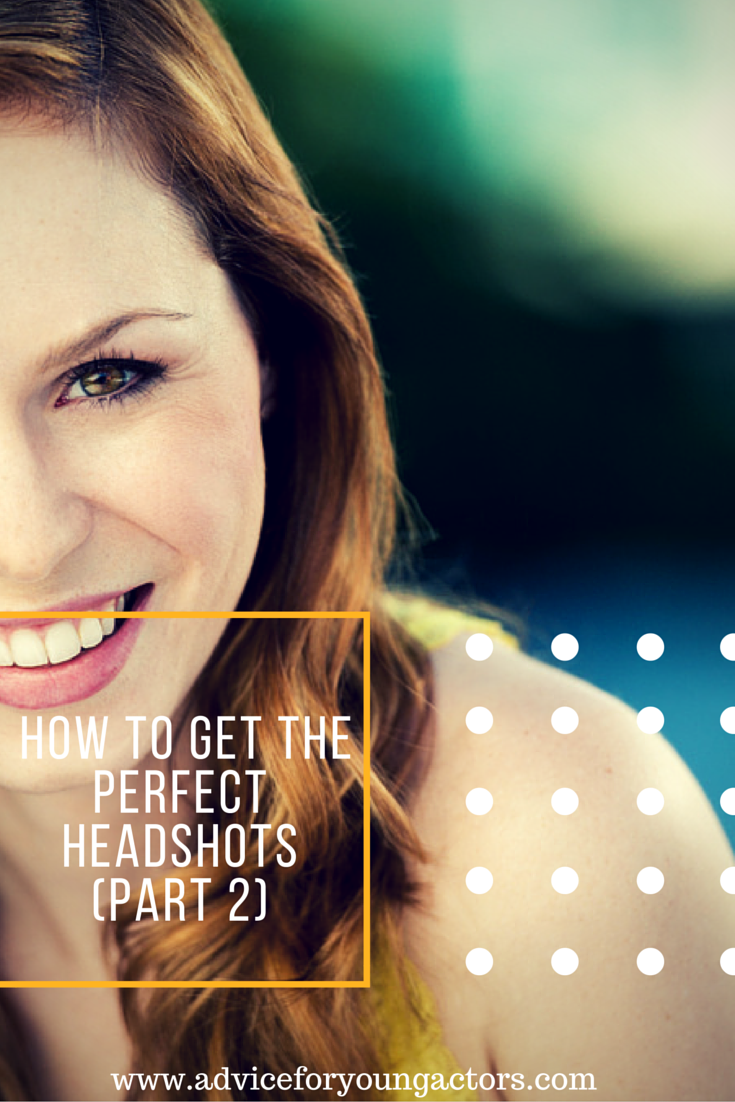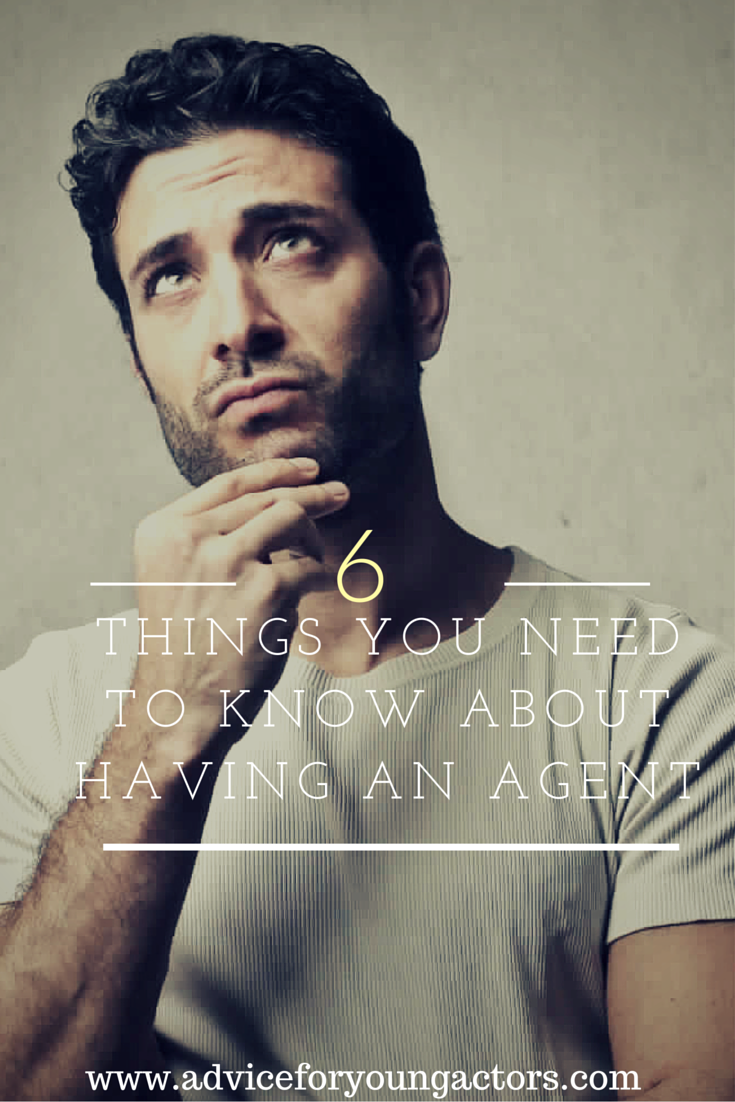HOW TO GET THE PERFECT HEADSHOTS (PART 1)
 It’s amazing how often I see actors with terrible headshots. Sadly, nobody will tell you when you have a crappy headshot. Except me. I’ll tell you.
It’s amazing how often I see actors with terrible headshots. Sadly, nobody will tell you when you have a crappy headshot. Except me. I’ll tell you.
Part of the problem is that your friends and family don’t know the industry, so they see a pretty picture of you and they say, ‘Wow! Gorgeous!’. Little do they know that those shots are actually useless. What’s worse, a lot of agents won’t tell their clients either. I’m not sure why exactly – maybe they’re being polite or maybe it just takes up too much of their time to explain why they’re crap and what you need to do to fix them.
But it’s ok, I’m here to help. Here are the crucial things you need to know to get an amazing headshot:
1. Your headshot must, I repeat, MUST, reflect your casting type. There is absolutely no point having a headshot where you look like a sex goddess if you generally get cast as the naive wallflower. If you don’t know your type, read my other post on this, do some research, or ask your agent. Once you know, you want to just gently suggest your type in your headshot. A naive wallflower might wear something in soft colours and textures, and the nerdy guy might wear a checkered shirt and glasses. Just be subtle about it. The main thing is not to play AGAINST type – so if you’re a naive wallflower, it’s not helpful to wear a leather jacket and black eyeshadow.
We all want photographic evidence that we’re sexy, intelligent and powerful. It’s ok to pursue this, just don’t use those shots for your headshot unless your casting type is sexy. Even better – stop trying to be sexy and just be natural and your casting type should appear naturally in the photo.
2. You CANNOT use professional glamour photos as your headshot. Glamour shots (those studio ones that you got a special deal on for Christmas) are usually under strict copyright so they cannot be reproduced or distributed by you or your agent. You need to go to a photographer who has specifically agreed to shoot actors headshots, because they will understand that they need to give you the right to reproduce the image. If in doubt about copyright, ask your photographer before you agree to anything.
3. Apart from the copyright issues, you shouldn’t be using glamour shots anyway – they’re not appropriate. Agents don’t want glamour, they want an accurate but flattering picture of the real you. If your shot looks like it came out of a fashion magazine, then you’ve gone wrong somewhere.
If you get to your audition and look nothing like the shot your agent sent ahead, you and your agent will be in big trouble. So keep it simple – natural-looking makeup is best, natural lighting, minimal photoshopping. You want to look like you at your best.
4. The days of black and white headshots are sadly over. As far as I’m aware, this is the case in pretty much every country, but you can always check with your agent. Colour is preferred now, but get your photographer to format your favourites in both B&W and colour so you can use either.
5. It needs to be current. Don’t submit a shot of you with an old hairstyle or hair colour or from two years ago, just because you think it looks better. If it’s not current then your agent can’t use it.
6. Full-length or ¾ shots are optional – some agents use them, some don’t. If you have a smokin’ hot body, it’s probably worth getting one. If not, I wouldn’t bother unless your agent requested it.
7. You don’t need character shots. Generally I think they’re not very practical – name me an agent who has time to shuffle through folders to find that ‘nerd’ shot of you for one random audition per year. Besides, if you are a nerd type then your headshot should suggest that – that’s step 1!
If you want to get one just for fun and it’s not going to cost you anything extra, no worries. You may find it useful for auditions that you source yourself, or for websites that allow you to display multiple photos. But personally I think your time, money and energy would be better spent on a ¾ shot.
Overall, I find it useful to keep in mind what headshots are actually used for.
Your headshot is the ally that works for you when nobody else can.
Whether it’s by you or your agent, your headshot will be sent ahead to your audition. Your prospective employer may look at it before, during, and/or after your audition. Before the audition, it may be your first and only chance to convince a prospective employer to actually consider auditioning you. But you’re not there yet, so your headshot has to convince them for you.
After the audition, your prospective employer will look at it simply as a quick visual reminder of what you looked like. They may have seen a hundred people audition that day, so the memory of your audition may be a little foggy, even if they liked what you did. When they’re trying to decide who to call back or who to cast, they will probably spend some time looking at a bunch of headshots. Again, you’re not there to remind them how awesome you were in your audition. So your headshot has to convince them again.
No matter what your type is, no matter the role, your headshot is always basically convincing people the same thing:
“I’m professional, I’m appropriate, I’m worth it.”
That means you have to ask yourself:
1. Does my headshot look professional? Don’t lie to yourself… if it looks amateurish, you will look like an amateur actor.
2. Is this headshot appropriate to my type? Does it scream, “Yes, I can play the awkward smart girl, hire me!”?
3. Does this headshot really look like me?
I like to think good headshots look ‘striking’ rather than ‘pretty, ‘handsome’, or ‘sexy’. If your eyes sparkle and you look incredibly alive, that’s what you want, even if you don’t look classically beautiful. We’re actors, not models… we’re here to play real people, so we need to look like real people. Put your ego away and your best face forward…
…and go and read part 2 of this blog post.
 Recently I was asked for some feedback by someone who (unsuccessfully) auditioned for me. It’s unusual for actors to even ask for feedback, so I was happy to take some time to write him an email. When I thought more about it, I realised his mistake was a really, really common one for a lot of new actors, so I thought I’d better share it with you here.
Recently I was asked for some feedback by someone who (unsuccessfully) auditioned for me. It’s unusual for actors to even ask for feedback, so I was happy to take some time to write him an email. When I thought more about it, I realised his mistake was a really, really common one for a lot of new actors, so I thought I’d better share it with you here. 

 In my first post, I gave you the most important things you need to know about headshots before you go for your shoot. If you haven’t checked that out, you may want to check that out
In my first post, I gave you the most important things you need to know about headshots before you go for your shoot. If you haven’t checked that out, you may want to check that out  I promised I would talk about headshots, but there’s something important we need to discuss before we get to that: casting type. If you want your headshot to actually get you work, it has to look like you – but it also has to bring out the right elements of you. If you get a headshot that brings out your sexy side, but your casting type is not sexy at all, then your headshot won’t help you in the long run. So let’s get to know ‘type’.
I promised I would talk about headshots, but there’s something important we need to discuss before we get to that: casting type. If you want your headshot to actually get you work, it has to look like you – but it also has to bring out the right elements of you. If you get a headshot that brings out your sexy side, but your casting type is not sexy at all, then your headshot won’t help you in the long run. So let’s get to know ‘type’. You may have heard other actors talking about being ‘represented’. This is the terminology used for an actor who is registered (or ‘on the books’) with an agent, who puts them forward for roles and handles their contracts and payment if they are cast. An agent is a useful ally to have, but having one is not necessarily essential when you first start out. Let’s talk through why you may or may not need one.
You may have heard other actors talking about being ‘represented’. This is the terminology used for an actor who is registered (or ‘on the books’) with an agent, who puts them forward for roles and handles their contracts and payment if they are cast. An agent is a useful ally to have, but having one is not necessarily essential when you first start out. Let’s talk through why you may or may not need one.